Ahead of this week’s red box reveal, here’s what heads up the sector’s wish list – along with best-guess odds in the face of reality
Chancellor Jeremy Hunt will delve into his red box this week, facing a series of spring budget demands from the food industry in the midst of the cost-of-living crisis. But what are the chances of the sector getting what it wants? With this week also seeing the start of the Cheltenham Festival, The Grocer has enlisted the help of those making the calls to assess the odds of them being met.
Bonfire of ‘burdensome’ new regulations
Many an industry wish list begins with what the government should not go ahead with, and this one is no exception.
First on the chopping block if the big trade bodies have their way would be Extended Producer Responsibility (EPR) and the UK’s Deposit Return Scheme (DRS), estimated this week by the BRC to be set to “add around £4bn in costs to retailers”, which they claim will inevitably be passed on to consumers.
With EPR due to come into force next year, The Grocer this week reports negotiations with industry have descended into a “shambles” and the BRC is calling for a comprehensive review of both policies, especially given the chaos over DRS in Scotland, where the first system is due to launch in August.
The FDF is calling for an urgent review of the current draft EPR regulations and policy framework.
It’s also not given up hope that the government may scrap plans for a ban on bulk buy HFSS promotions, due to come into force in October, because of the possible impact on inflation.
But hopes are not high the Chancellor will take the axe to such flagship environmental or health projects, especially as some fear the Treasury is looking forward to a giant, ‘un-ringfenced’ cash grab.
Odds: 6/1
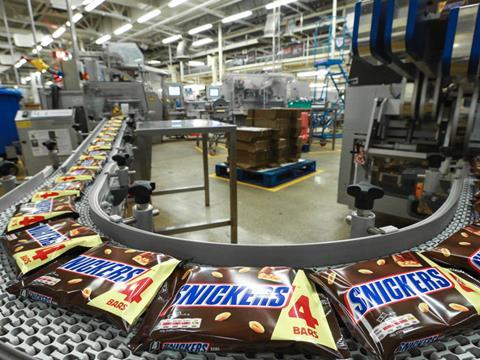
Expand energy support for businesses
Continued measures to protect households from soaring energy bills are widely expected from Hunt this week but there is far less confidence this will extend to businesses.
The government’s new Energy Bills Discount Scheme will kick in for firms from next month, but the level of support for food and drink manufacturers is so low it is described as “pointless” by one source.
Sectors excluded from the scheme include poultry farming and protected horticulture and fruit & veg production – despite evidence this is already resulting in shortages.
“We’d love energy support to be extended to our end of the supply chain as the rising cost of production is outpacing any chance of recovering cost,” says Richard Griffiths, CEO at the British Poultry Council.
Yet farming minister Mark Spencer has already poured cold water on the chances, while retailers are also missing out, despite the BRC pointing out they account for nearly a fifth of energy spend.
The ACS has called for a £10k grant for c-stores most in need of energy support, with CEO James Lowman arguing such a loan scheme would be “at worst cost neutral to the Treasury”.
“We would welcome a clear plan from the treasury about energy prices moving forward,” adds Rupert Ashby, chief executive of the BFFF. “The food industry must surely be top of the list for government support.”
Odds: 5/1
Incentives to invest in growth
Despite the shackles on public spending since Kwasi Kwarteng’s disastrous “mini budget”, the government is under intense pressure to be seen to try to encourage growth, given the UK’s sluggish record.
Labour has suggested long-term tax breaks to boost investment, and food and drink leaders are among those demanding action in areas such as the economy and health.
The FDF wants incentives to help companies invest in innovation to drive reformulation and healthier product development such as UK Research and Innovation (UKRI) funded projects. It points to the lauded Scottish Government-funded Reformulation for Health Programme.
The BRC has also called for a series of tax incentives to stimulate investment in green technology, including solar panels, green fuelled vehicles and R&D.
It’s also among those calling for a reform of the controversial Apprenticeship Levy, proposing it is broadened into a wider Skills Levy.
“The government should create a climate of greater certainty, enabling food and drink businesses to invest confidently,” says Rod Addy, CEO of the PTF. “Increasing incentives for UK-wide investment, particularly in green projects would potentially cut energy costs as well as carbon footprints.”
Odds: 4/6
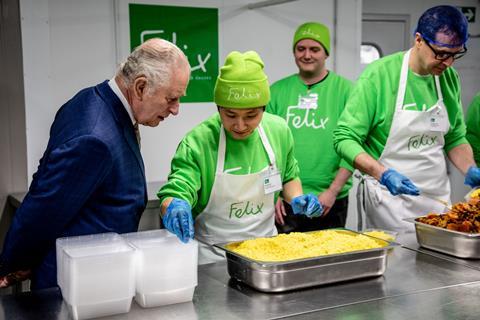
Fund food surplus redistribution
King Charles acknowledged the vital work carried out by surplus food redistribution with a recent visit to the Felix Project in London. But the royal seal of approval may not be enough to guarantee the £25m campaigners say they need to help transform the system.
Last week, FareShare announced more than 1,000 charities had backed its call on the government to reinstate funding to redistribute surplus food, which it claims would deliver 45,000 tonnes of extra surplus food a year to help the 14 million families facing food insecurity in the cost of living crisis.
The £25m is seen by many as a drop in the ocean vs the £650 of government subsidies for anaerobic digestion, and a no brainer considering the 14 million families facing food insecurity, but so far the government has refused to budge, despite a petition to the PM signed by 57 MPs across the political spectrum. “We have yet to meet a politician who does not support the idea that surplus food should be used to strengthen our communities before it becomes waste” says Lindsay Boswell, FareShare CEO. “However, the will is not enough. What is needed is action and action now.”
Odds: 6/4
Fundamental change to business rates
Chancellor Hunt delighted retail leaders in his autumn budget by freezing the business rates multiplier, which effectively saved businesses from an £800m hammer blow due to come in in April.
Measures also included ending so-called ‘downwards transitioning’ – meaning new rates will apply immediately from April instead of being phased in over three years.
But it still leaves the standard multiplier for UK businesses at 51.2p in the pound and the small business multiplier at 49.9p. Property experts Colliers point out nowhere else in Europe do businesses pay even half the rental value of premises, with head of business John Webber deriding the moves as “putting sticking plaster on a gaping wound”.
The BRC has called for the government to announce it will return to the original multiplier of 34.8p in the medium term, with a roadmap published earlier.
Webber says other measures to cushion the impact of “economic turmoil” caused by rates could include introducing yearly valuations rather than every three years, which he says leaves retailers “at the mercy” of events such as the war in Ukraine. But the odds as estimated by Webber are slim indeed.
Odds: 1,000/1
No new tax on booze
The Tory government habitually uses alcohol tax freezes to bring cheer when it’s otherwise short on the ground and trade bodies will be hoping for the same again.
The freeze on alcohol duty has already been extended to August to protect pubs, breweries and distilleries.
The Wine & Spirit Trade Association’s ‘main ask’ is “no changes to proposed duty rates when the UK’s new alcohol taxation system goes live on 1 August”, says its CEO Miles Beale.
“This is consistent with the government’s aim to bring down inflation and help cash-strapped consumers.” The British Beer & Pub Association has called for no increase in the headline rate of beer duty as well as an increase in the discount for draft beer in pubs and implementation of the previously announced reduced rate for low ABV booze.
Odds: evens







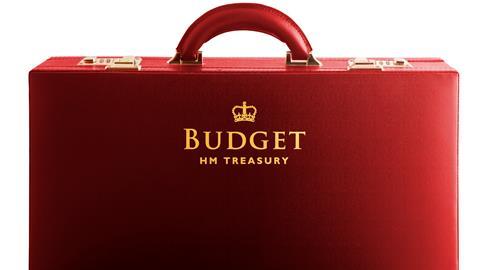
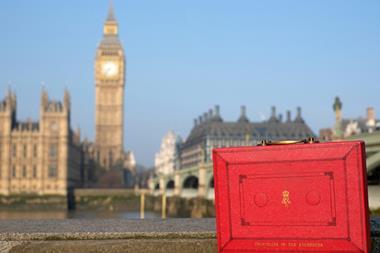




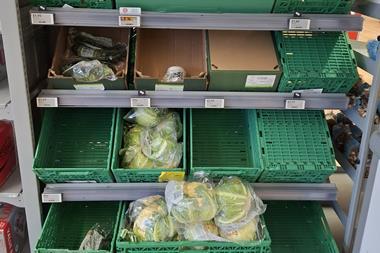






No comments yet